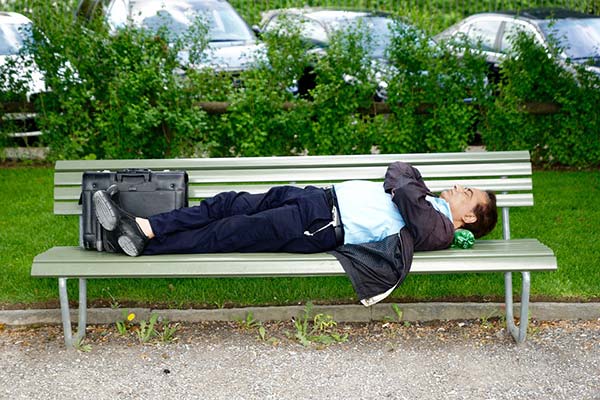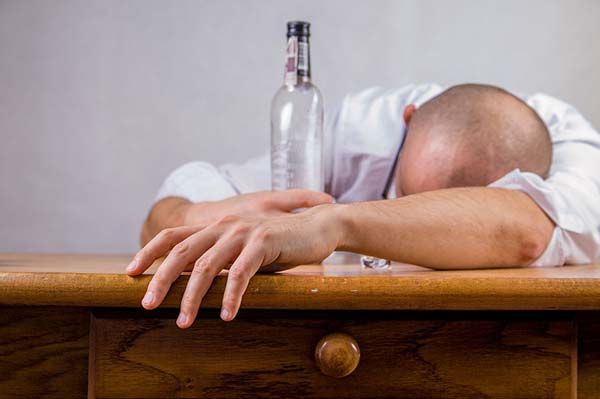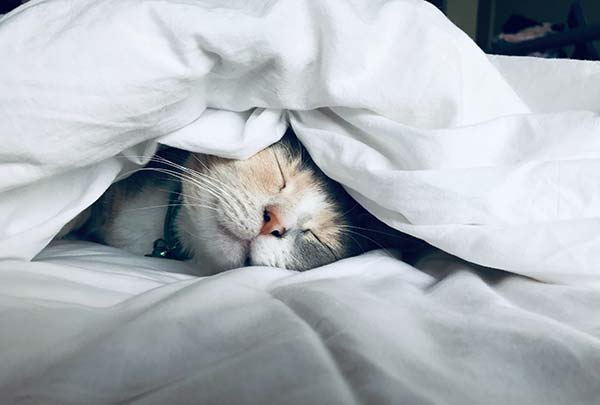Sleep is one of our most important bodily functions and is something that we do to improve our well-being, mood and longevity.
Whilst so many people are searching for the latest health fad, taking supplements or looking for a magic cure for their ailments or health issues, one of the most obvious ways to feel better is to get a a good night’s sleep.
But, some people – around 35% – struggle to get more than 7 hours sleep each night and insomnia is a growing issue thanks to the increase of technology, work stresses and day-to-day worries.
When it comes to improving our sleeping patterns, many of us search for tips and tricks to help better our sleep quality and there are plenty of myths around that some of us use as the truth.
These myths tend not to be backed up by science or any rational form of reasoning, so can actually be harmful to our health if carried out for a long period of time.
With that in mind, here are six of the worst sleep myths which you might believe that are almost certainly damaging your long-term health.
Article Chapters
1. It Doesn’t Matter What Time You Sleep
Many adults hold on to the myth that it doesn’t matter what time you sleep, so long as you manage the daily recommended amount (i.e. between 6 to 8 hours).
However, our animalistic instincts take over when it comes to sleep cycles and the benefits to us on a species level.
We are diurnal – the opposite of nocturnal – so, a sleep pattern which follows this is subsequently much better for our bodies and mental wellbeing.
Of course, career choices can often impact this without much choice on our part.
Night shift workers can’t cite being a diurnal creature as good enough reason to never go to work and often suffer the most when it comes to getting good quality sleep and this can lead to increased risk of accidents or health issues.

2. You Can ‘Catch Up’ on Sleep
This is one myth-busting fact which actually pains us to pen.
But, the fact is that sleeping in at the weekend really isn’t good for your sleep health and doesn’t help you catch up on the lost hours during the work week.
Some studies set out to test the power of the lie in.
Conducting a study where there were consecutive nights of sleep deprivation, then one night of ‘recovery’ showed that the additional sleep on the recovery day did not, in fact, help.
The subject actually showed signs that their mental functioning had still not recovered to the previous state prior to deprivation.
So, however much we all may value our lie-ins; they don’t actually help you to recover from elongated periods of deprivation.
But the fact is that altering your sleep schedule to a nocturnal pattern can be extremely unhealthy in the long-term.
This means that changing or at least trying to make sure your shift switches, to allow normal sleep, can be vital for your health.
3. Closing Your Eyes is as Good as Sleep
Another big sleep myth is the fact that if you close your eyes and lay still, it’s just as good as actually falling asleep.
Well, the answer to that one is a quick and simple no.
You may feel rested on some level, but this is actually one of the most harmful myths surrounding sleep.
Resting, but not actually sleeping, can lead to a serious deprivation – which can impact you both physically and mentally over time in major ways.
All of your body knows when you’re awake and when you’re asleep, so it functions very differently.
If you don’t sleep, then your body does not function in this ‘rest mode’ and it can be extremely harmful if done for too long.
If you really do need to rest, then rather than closing your eyes and lie down, there are other things you can do to wind down, such as going for a walk or having a shower.
4. Falling Asleep Instantly is a Good Sign
Some people are very proud of their ability to fall asleep anywhere, at any time and in practically any position.
They call it a ‘natural gift’.
But, in fact, this isn’t necessarily a good thing in terms of your sleep health.
It actually is more than likely a sure sign that you are not getting enough sleep overall.
Falling asleep instantly or all over the place is clearly a sign of sleep deprivation or another serious medical issue.
And for that reason, seeking the help of a medical professional is advised.
5. Loud Snoring is Annoying, But Not a Health Concern
Snoring can be the bane of your partner’s existence.
But, it’s just an annoying habit and nothing serious, right?
Wrong. Chronic snoring can actually be a sign of sleep apnea; a disorder which may lead to the person to stop breathing while they sleep.
Snoring is an indication that the airway is being blocked during the night.
Though not all snoring is a sign of sleep apnea, it is important to get this checked out rather than miss the very obvious signs.
Fatigue is often a symptom of this, both for yourself and your partner.
Snoring doesn’t just affect only their sleep but your own as well, so this can be a sure sign that sleep apnea may be something which you suffer from.
Which you can have an increased risk of if you are a smoker, have higher blood pressure, overweight or a combination of all of these factors.

6. Drinking Alcohol Helps You Sleep
Having a soothing, relaxing nightcap before you go to sleep, whether in the form of whisky, wine or beer, is one of the most common things that people think of to help them get to sleep if they are struggling to nod off.
Whilst alcohol may help you to fall asleep, it dramatically reduces the quality of the sleep you are getting that night.
In particular, alcohol disrupts your rapid eye movement, or REM, stage of sleep, which is the most important stage for your memory and learning.
So, whilst you will have gotten some sleep and nodded off easily, some of the most important benefits of sleep will be lost.
Alcohol also acts as a diuretic, so it is likely you will have a more disturbed sleep as you will need to go to the toilet in the middle of the night.
If you are struggling with maintaining or setting a regulated sleeping pattern, then it is best to get professional medical advice.
There are some other ways which have been said to improve your sleep quality, such as high strength fish oil, decaffeinated drinks and melatonin supplements, but it is always best to check before taking any measures.

